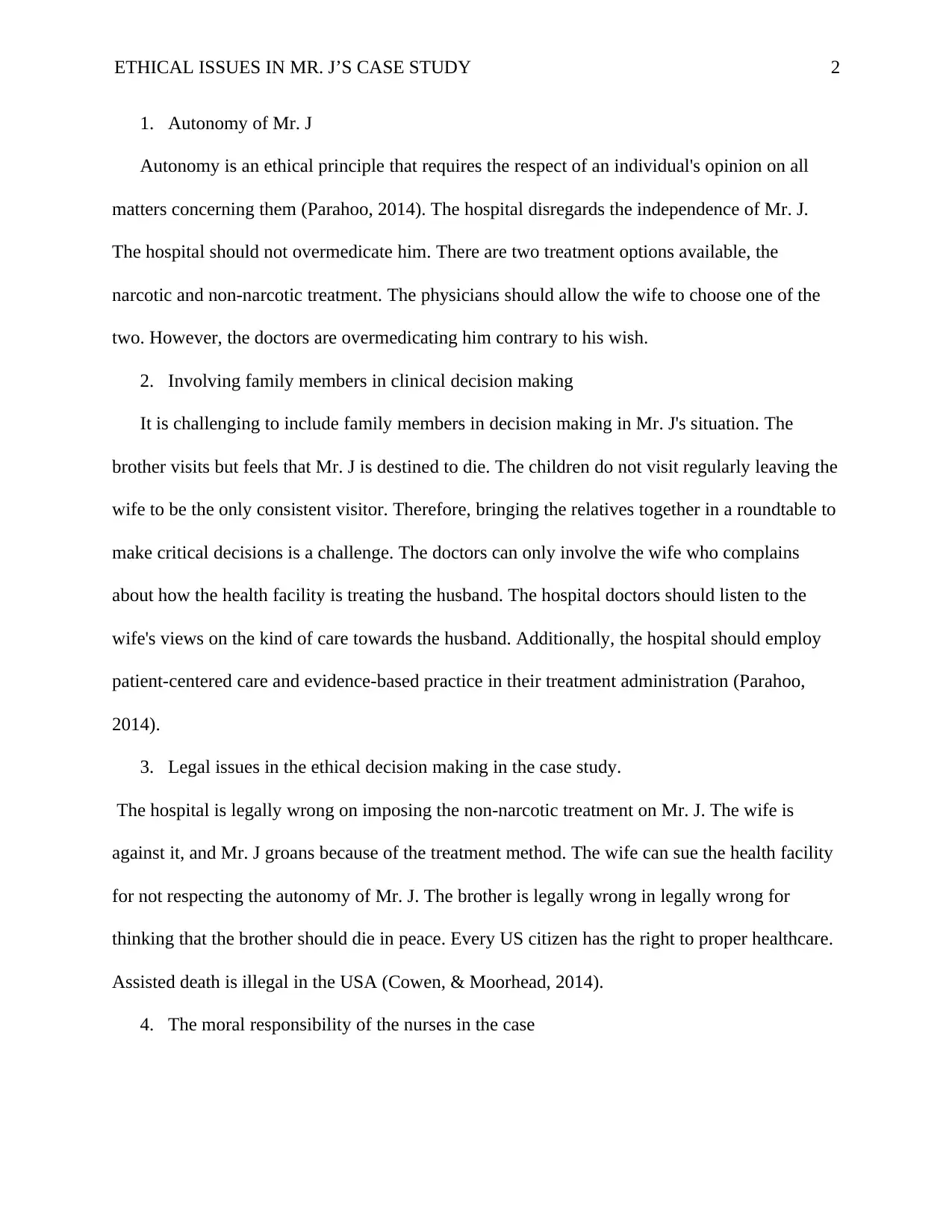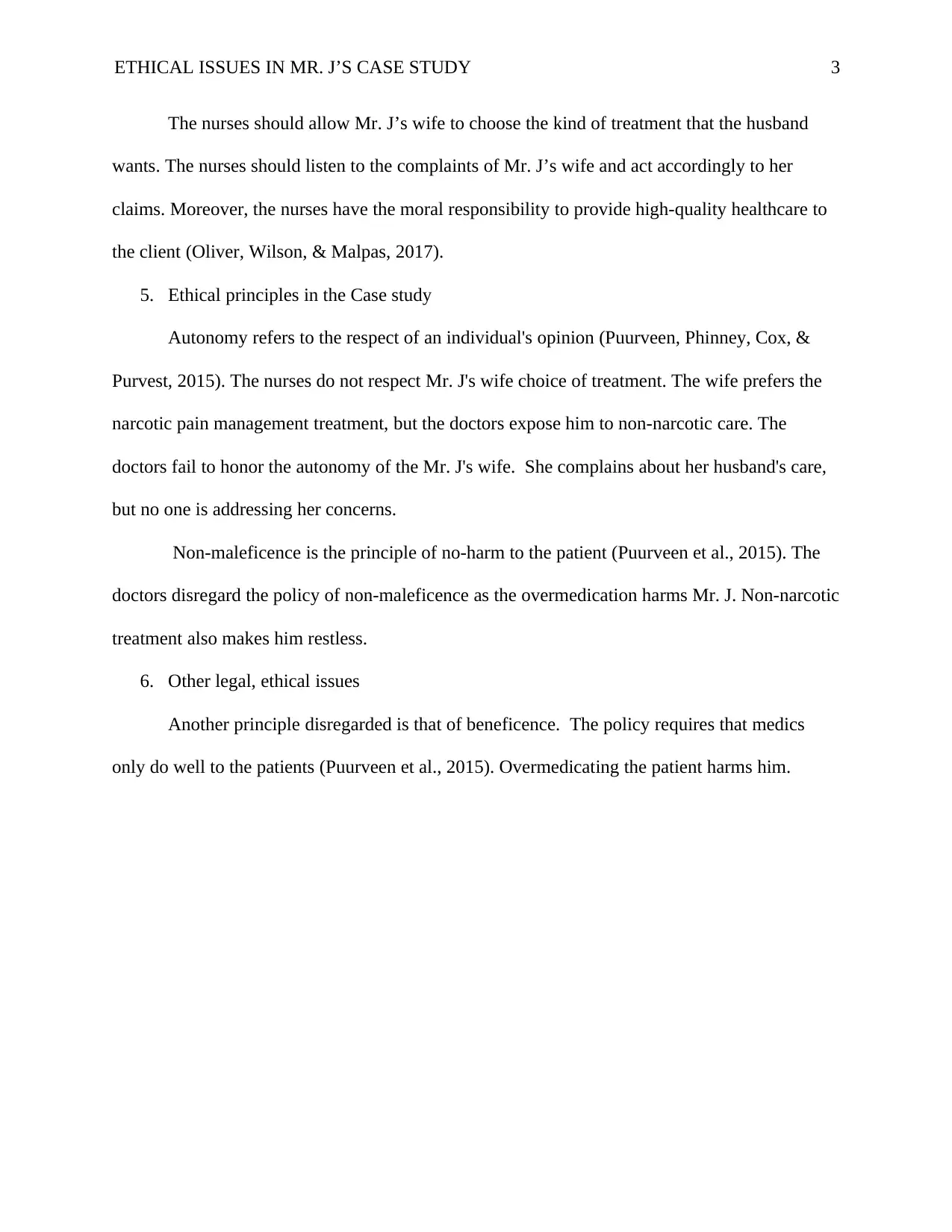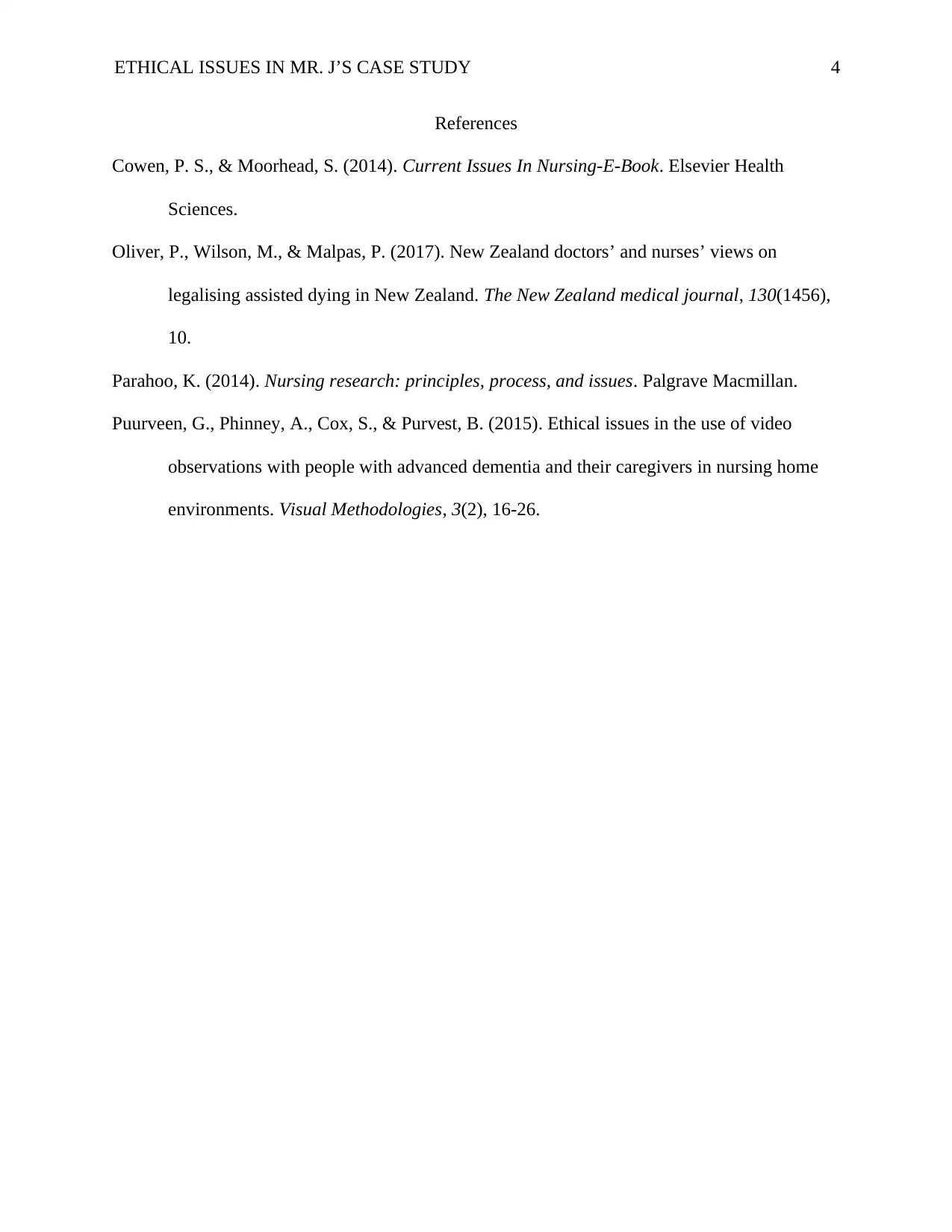Ethical Considerations in Healthcare: A Case Study of Mr. J
VerifiedAdded on 2023/06/12
|4
|763
|451
Case Study
AI Summary
This case study delves into the ethical and legal complexities surrounding the treatment of Mr. J, a 56-year-old man with severe injuries and minimal awareness. The analysis focuses on issues such as patient autonomy, the involvement of family members in clinical decision-making, the moral responsibilities of nurses, and the application of ethical principles like beneficence and non-maleficence. The study highlights the conflict between the medical staff's decisions and the wife's preferences regarding Mr. J's pain management, raising concerns about respecting patient autonomy and providing appropriate care. It also touches upon the legal implications of the hospital's actions and the ethical considerations of assisted death, ultimately emphasizing the need for patient-centered care and adherence to ethical guidelines in healthcare settings. Desklib provides access to similar case studies and solved assignments for students.
1 out of 4











![[object Object]](/_next/static/media/star-bottom.7253800d.svg)